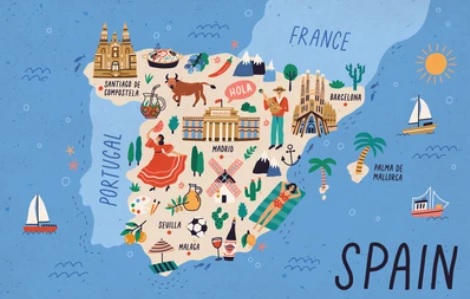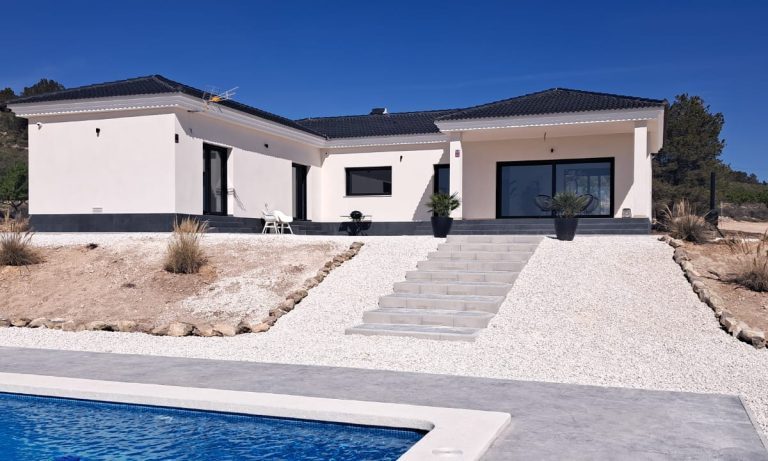Spanish Customs Towards Expats: Essential Cultural Insights for Successful Integration
Madrid, April 28, 2025 – Spain is a popular destination for expats, thanks to its pleasant climate, rich culture and relatively low cost of living compared to other European countries. For expats settling in Spain, it is important to familiarize yourself with local customs and etiquette in order to integrate successfully both professionally and personally.
Language and communication
Although Spaniards are generally friendly to foreigners, speaking Spanish is highly valued. Expats who make an active effort to learn Spanish are often more positively received and experience a faster integration into society. In large cities such as Madrid and Barcelona, English is sometimes spoken, but in smaller towns and villages, mastering the language is essential for daily contact. Communication is direct, but always polite, and body language is often used, making it important to understand non-verbal signals as well.

Flamenco originated in the second half of the 19th century in Andalusia, southern Spain.
Social etiquette and networking
Spaniards place great value on personal relationships, both private and business. It is customary to greet each other with a kiss on both cheeks in informal situations, although a handshake is more common in business contexts. Expats are often welcomed with open arms, especially when they adapt to local customs and embrace everyday life. Building a network is crucial for both professional and social integration. Participating in local events, such as cultural festivities and food or drink occasions, offers an excellent opportunity to make connections.
Eating habits and time use
In Spain, social life often revolves around eating and drinking. Meals are eaten later in the day than in many other countries: lunch is usually around 2pm and dinner is not until after 9pm. In business circles, business lunches can be longer, with conversations ranging from professional to personal. It is important for expats to adapt to these timetables, as this is seen as a sign of respect.
Regional diversity and cultural sensitivities
Spain has a rich cultural diversity, with significant regional differences. It is important for expats to be aware of local traditions, especially in regions with a strong regional identity such as Catalonia or the Basque Country. Political issues, such as the Catalan independence movement, can be sensitive and should be avoided in informal conversations. Expats who familiarize themselves with local customs and history will be more likely to be accepted in their new environment.
Conclusion
For expats settling in Spain, it is essential to be aware of the social norms and values. Understanding and respecting local customs not only promotes personal integration, but also professional relationships. Participating in the culture, learning the language and establishing personal networks are keys to a successful expat experience in Spain.
1. Join local expat groups and associations
In smaller villages like Pinoso there are often informal expat groups that organize regular meetings. These groups can exist both online and offline and are a great way to meet other foreigners who are in the same situation. Here you can share experiences, ask questions and expand your network.
- Facebook groups: There are many active Facebook groups for expats in the Alicante region, where you can not only meet other expats but also find local events, tips and recommendations.
- Meetup.com: Although Pinoso is a small village, larger gatherings such as coffee drinks, walks or shared hobbies can still take place (for example in Alicante or Elche).
2. Participation in local events and festivals
Pinoso is proud of its local traditions, and festivals are an important part of social life. Participation in events such as the Fiesta of the Vendimia (wine festival) or other cultural holidays is a great way to mingle with both locals and other expats. This is an opportunity to take part in communal activities and have conversations in a relaxed setting.
In addition, you can participate in local markets, which are not only a great way to get to know the culture and products of the region, but also to meet other expats and local entrepreneurs.
3. Get involved in local hobby clubs or sports teams
In Pinoso you can also network by joining local hobby groups or sports clubs. Spanish villages often have active communities around hobbies such as:
- Walking or cycling (Pinoso is located in a beautiful area, so walking or cycling tours are popular).
- Cooking classes: Learning to cook Spanish style is a great way to connect with both expats and locals.
- Yoga or pilates: Health and fitness groups often attract a mix of locals and foreigners.
- Wine tastings: If you are interested in local wine production, wine tastings can be a great way not only to get to know the region but also to make contacts.
4. Café or bar: your second home
Many expats in Spain use local cafés or bars as a place to meet other foreigners. In Pinoso, there are likely to be a few popular cafés or tapas bars where expats congregate, especially in the evenings. It can be useful to visit a few of these places regularly – this way you can get to know others in an informal and relaxed environment. Local cafés and bars can also be a source of useful information about new networking events, jobs or other social activities.
5. Professional networking events
If you want to expand your network professionally, there are often local networking events or events aimed at expats or companies that operate internationally. Although Pinoso itself is small, the Alicante region is rich in business networking events. Make sure you stay up to date with, for example:
- Chamber of Commerce events: These types of meetings can be a good way to make business contacts and find business partners.
- International Business Networking Clubs: These networks are not only for large cities, but also in the Alicante region such events are increasingly being organised.
6. Volunteer work
A great way to build both your local and international network is to volunteer. In smaller communities like Pinoso, there are often volunteer initiatives that help with local events, animal shelters, elderly care, or environmental projects. Volunteering not only offers the chance to meet other expats, but also to bond with the locals.
7. Language exchange groups
Since Pinoso is not an international hotspot like Madrid or Barcelona, it is a good idea to actively participate in language exchange groups. Language exchanges are an effective way to improve your Spanish and at the same time meet people who share the same interest in the Spanish language and culture. Often both expats and local Spaniards come together to practice their language skills.
8. Locations for networking in the region
If you want to leave Pinoso occasionally for a wider network in the region, you can visit cities such as Alicante, Elche or Murcia consider. These larger cities offer more opportunities for networking through business events, expat scholarships and professional networking drinks.
9. Business and social clubs
Look for business or social clubs in the Alicante area that support expats. For example, some of these clubs organize events such as drinks, business lunches, and networking sessions that are specifically aimed at foreign entrepreneurs, freelancers, or companies.
Bonus Tip: Be patient and open-minded

The process of networking in a smaller community like Pinoso can be a bit slower than in larger cities. It is important to be patient, open to the local culture and show that you want to be actively involved in the community.
By actively participating in Pinoso's social and cultural events, you not only stay social but also build a strong network that is valuable both personally and professionally.


